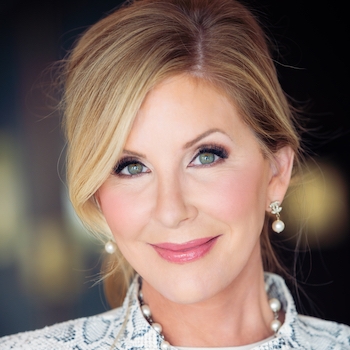
A Conservative Daughter’s Thoughts on Texas’ New Abortion Law
In May, Texas Governor Greg Abbott signed the “Heartbeat Act” into law. Now that the law is in effect, women in Texas can no longer terminate their pregnancies if they are more than six weeks along. Keep in mind that most women don’t even realize they are pregnant in the first six weeks. The law also prevents rape survivors who become pregnant from terminating their pregnancies. Furthermore, it gives private citizens the ability to enforce these regulations.
There was a time when I would have applauded the passage of the Heartbeat Act. Raised by a conservative doctor, I was taught to believe abortion was a sin. And, because my father did not permit anyone in our family to have our own identities, I never thought to question that message. In my mind, abortion for any reason was wrong. End of story.
Now, though? When the law passed, all I felt was horror: horror that the people in power are taking the rights of women away, and horror that women are willingly giving up their rights.
It’s time to wake up, time to reframe the discussion from one about abortion to one about women’s rights. We must shift to a place of empathy—from a me-based approach to a we-based approach. Otherwise, we risk losing one of our most fundamental human rights: the right of governance over our own bodies.

Subjected to propaganda
I grew up with a father who was a malignant narcissist. He demanded that all of us—my mother, my brother, my sister, and me—adopt his thoughts, opinions, and beliefs. We were forced to become extensions of him.
There was no room for challenging what he said. Discussion, let alone disagreement, was not allowed. His control was so strong that I couldn’t even pick what foods I wanted to eat. Raised in an environment like that, it can come as no real surprise that I never developed opinions or beliefs of my own.
To make sure that I bought into his ideas about abortion – ideas my mother shared – I was forced to watch videos of actual abortions. Think of the most dramatic pro-life propaganda you can. That’s what I was made to watch.
It was horrifying, but it did its job: I was vehemently pro-life, and I shoved my viewpoint on others every chance I got. Raised that way, I had no empathy for others. Instead, I insisted that others adopt my worldview, just as my father did to me.
My identity metamorphosis
When I was in college, I was raped. After that terrible day, I had a stunning revelation: despite what I had been taught, and despite what I believed, if I got pregnant because of being raped, I would terminate it.
Going through such a traumatic event started me down the path of an incredible metamorphosis. I started to question all my beliefs. Up until my rape, I had let my parents tell me what I should think, how I should act, and what I should feel. After what I experienced, though, I didn’t want somebody telling me what I could and could not do with my body ever again.

My rape and its aftermath ripped the scales from my eyes. I suddenly saw that, like my father did, I had approached the world from a place of “me.” Convinced of his righteousness, my father imposes his beliefs on others, then rationalizes his behavior by telling himself that he knows best. When I judged others and tried to force them to adopt my views, I was doing the same.
During my metamorphosis, though, I began to adopt a “we” approach. Rather than forcing others to adopt my beliefs, I moved to a position of empathy. That shift changed everything in my life, including my stance on abortion. It was finally, abundantly clear to me that every single woman should have the right to choose what she does with her own body.
Empathizing with others led me to another revelation: someone can be pro-choice and not pro-abortion. The important thing is that every single woman has the right to choose for herself what is right for her.
From gun regulations to reproductive regulations
In the state of Texas, you can carry a gun almost anywhere. The legislature keeps removing regulations on guns in our state, but at the same time, they keep placing tighter and tighter regulations on women’s uteruses. It makes no sense.
The tightening of reproductive regulations is even more frustrating when I think about how hard we have had to fight for women’s rights. When I see people happily giving up those rights, it’s frightening.
Just like I did when I was a child growing up in my parent’s house, people are adopting these restrictive views without questioning them. By buying into the propaganda, they are staying firmly entrenched in the me-approach, not the we-approach.
The passage of this law—which, remember, allows private citizens to police other people, including doctors—took things a step further. Now, we have sanctioned the ultimate “me” approach: we have unleashed a mob mentality. And mobs, as we all well know, are not known for empathy or rationality. It’s truly frightening.
Go back to empathy
Faced with an obstacle like this, it’s easy to feel like all is lost. Doing so would be a mistake, though. Instead, we must take steps to reclaim our power and our rights. To do that—to move forward in a real and meaningful way—we have to reframe the argument. We must look at the discussion around abortion not as a life-versus-death issue, but as a woman’s rights issue. Furthermore, we must employ empathy and learn to see the opposing side.
There was a time in this country when we could have true debate. Someone could put forth an argument or a point of view, and someone else could point out the flaws in that argument without sinking to diatribe and hate. Now, we just have mudslinging. We must get back to a place of dialogue if we are to have any hope of moving forward.
When Greg Abbott signed this bill into law, there seemed to be very little contemplation or discussion around the fact that Texas ranks 42nd in the United States for healthcare. The bill passed without any meaningful answers about who is going to support healthcare for the women and babies affected by it. There was also no answer to the question of who will support the baby once it’s born.
Once again, we must go back to empathy. We must think about the real-world implications of this law to the people who are being subjected to it. Failure to do so is nothing more than imposing values from a place of righteousness and “me.”
Ultimately, we must all wake up and realize this new law is far more than a regulation on reproduction; it’s an erosion of women’s rights. It’s an attack on our freedoms. Ultimately, it’s about controlling women instead of supporting and empowering them—and there is nothing right or good about that.

